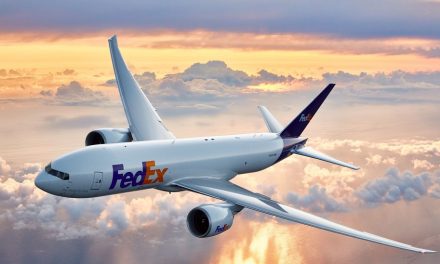
TNT Says Fuel, U.S. Economy Haven't Hurt Express Unit
TNT said rising fuel prices and the slowing U.S. economy aren’t hurting its express-delivery division. ‘TNT is coping well with the uncertainty in the economy,’ Marie-Christine Lombard, head of the Hoofddorp, Netherlands-based company’s TNT Express unit, said today at a press briefing in Liege, Belgium. There is ‘so far no impact.’
Jet fuel prices in northwest Europe have risen 42 percent this year, Bloomberg data show. TNT’s Memphis, Tennessee-based competitor FedEx Corp., the second-largest U.S. package-shipping company, posted its first quarterly loss in 11 years yesterday and projected earnings that fall short of analysts’ estimates as fuel costs rise and the country’s slowing economy curbs demand.
TNT is transporting as much as possible by road rather than air, helping to hold back costs as prices for diesel fuel rise more slowly than for jet kerosene. The company’s U.S. business makes up only 2 percent to 3 percent of total express-delivery volumes. TNT isn’t planning to expand its operations within the world’s largest economy, Lombard said today. ‘We’re not a big player intra-U.S.A. and we don’t plan to be one,’ she said.
TNT, which operates a fleet of aircraft for its express-delivery network, is considering forming a partnership with cargo airlines to use their freight space on some routes, Lombard said. Such an alliance would probably be a ‘commercial’ agreement and not involve a capital investment, she added.
Bonn-based competitor Deutsche Post AG’s DHL express-delivery unit and Deutsche Lufthansa AG, Europe’s second-biggest airline, set up the AeroLogic cargo joint venture this year. The business will fly freight and express mail from Germany to Asia and the U.S. starting in 2009, stepping up competition with TNT as well as U.S. rivals United Parcel Service Inc. and FedEx.
TNT will invest in new aircraft in the event that there is sufficient shipment volume that requires additional capacity, according to Lombard.
TNT said rising fuel prices and the slowing U.S. economy aren’t hurting its express-delivery division. ‘TNT is coping well with the uncertainty in the economy,’ Marie-Christine Lombard, head of the Hoofddorp, Netherlands-based company’s TNT Express unit, said today at a press briefing in Liege, Belgium. There is ‘so far no impact.’
Jet fuel prices in northwest Europe have risen 42 percent this year, Bloomberg data show. TNT’s Memphis, Tennessee-based competitor FedEx Corp., the second-largest U.S. package-shipping company, posted its first quarterly loss in 11 years yesterday and projected earnings that fall short of analysts’ estimates as fuel costs rise and the country’s slowing economy curbs demand.
TNT is transporting as much as possible by road rather than air, helping to hold back costs as prices for diesel fuel rise more slowly than for jet kerosene. The company’s U.S. business makes up only 2 percent to 3 percent of total express-delivery volumes. TNT isn’t planning to expand its operations within the world’s largest economy, Lombard said today. ‘We’re not a big player intra-U.S.A. and we don’t plan to be one,’ she said.
TNT, which operates a fleet of aircraft for its express-delivery network, is considering forming a partnership with cargo airlines to use their freight space on some routes, Lombard said. Such an alliance would probably be a ‘commercial’ agreement and not involve a capital investment, she added.
Bonn-based competitor Deutsche Post AG’s DHL express-delivery unit and Deutsche Lufthansa AG, Europe’s second-biggest airline, set up the AeroLogic cargo joint venture this year. The business will fly freight and express mail from Germany to Asia and the U.S. starting in 2009, stepping up competition with TNT as well as U.S. rivals United Parcel Service Inc. and FedEx.
TNT will invest in new aircraft in the event that there is sufficient shipment volume that requires additional capacity, according to Lombard.












